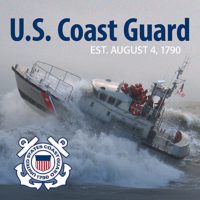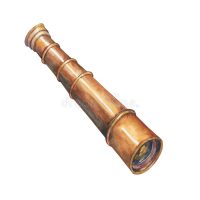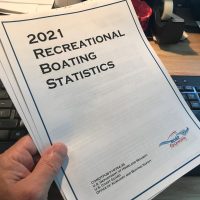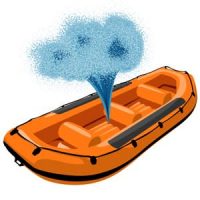September 6, 2022

Boating Tips for Beginners
This article from the Boating for Beginners site in my opinion is a fantastic start for all boaters. These tips are not only good for beginners, but also serve as a great reminder for the experienced boater. Please read more blogs from us at our site to enhance your education.
For Starters
- Boaters have a unique vocabulary. For example, the four sides of the boat are Bow = the front of the boat, Stern = the rear of the boat, Starboard = right side of a boat, and Port = left side of a boat.
- Do not overload your boat with too much gear and or too many passengers. By doing so, you could cause the boat to capsize, particularly in choppy water.
Before you head out
- Pay attention to the weather forecast before heading out and keep an eye on any bad weather heading your way. Turn back to shore if you think it’s going to storm. You don’t want to be out on the water if there is going to be lightening.
- Don’t forget to insert the drain plug before you launch your boat in the water. You wouldn’t believe how many people forget to do this.
- Never load and unload gear while sitting on the boat launch. Once your boat is loaded back onto the trailer and you’ve secured it using the winch cable, move your vehicle out of the way and allow the next person to use the ramp.
- Don’t forget to pack sunscreen and apply it to yourself a few times per day. Don’t forget to do this for smaller children six months and older as well. Experts recommend that you use a water-resistant, broad-spectrum sunscreen with at least a 30 SPF. The higher the SPF, the better.
- Make sure you have a properly fitting U.S. Coast Guard-approved PFD for each person that is on the boat. The PFD must be in good condition, and easy to get to by the passengers in the case of an emergency.
- Always pack plenty of water and non-perishable snacks for the day, especially if you are going to be boating with smaller children. You will thank me later for this tip.
Stay Prepared
- Learn and understand how to follow channel markers. Channel markers use a combination of colors and letters to communicate with boats to direct them within the safe edges of the water.
- One of the most basic boating tips for beginners is to maintain a slow speed while in or approaching the marina. That also applies for when you are passing or approaching other vessels out on the water. Not only is it dangerous to go quickly in these areas, but it will also create a large wake that will affect the other boaters nearby.
- Keep an onboard first aid kit stocked with gauze, bandages, antibiotic ointment, aspirin, scissors, etc. You never know when you might get some bumps, scrapes, and cuts. I cut my leg once climbing up the ladder on the back of the boat.
- Backing a trailer up to the boat launch can be very intimidating. The key is to remain calm and go slow. Keep your hand at the bottom of the steering wheel (at the 6 o’clock position). Then while backing up, whichever direction you turn the wheel, is the direction that the trailer will start to go.
Other Pre Launch Factors
- Don’t forget to pack some motion sickness pills if you are boating with children or inexperienced adults. When motion sickness sticks at sea, it can be one of the most uncomfortable feelings, especially for young children.
- Have a float plan before you head out on the water. It is important to have a float plan in place so that someone on land knows where you might be just in case something happens.
- Make sure to carry a fully charged waterproof VHF marine radio on board. If you have an emergency while out on the water, you can contact the Coast Guard on channel 16.
- Keep some tools on board that you can use to fix a mechanical problem, so that you are not sitting out in the middle of the water for a couple of hours until help arrives.
- Before heading out, top up your fuel tank, and keep an eye on your fuel level as the day goes on to make sure that you will have enough to get back to land.
- Designate another person on the boat who can fill in for you in the case of an emergency. They should know how to call for help using the VHF radio or drive the boat back to land.
While you are out there
- You never want to throw your anchor overboard. There are so many things that could go wrong with this. Primarily, make sure it’s attached to your boat! The anchor line could wrap around your leg or other gear and pull both overboard. The anchor could swing back towards the boat and damage your hull. Instead, always make sure to lower, or “let out” an anchor into the water slowly
- Save the alcohol for when you are back on land. There is something about the wind, sun, vibrations, and the motion of being on a boat that will intensify the effects of alcohol, and drugs. These are referred to as stressors. Your blood-alcohol content will not rise rather the effects of alcohol nearly triple. This will affect your reaction time and better judgment. Although you might be okay to have one or two drinks while on land, on a boat, thats like having three to six drinks. Ouch! We really emphasize this in our class when we talk about boating tips for beginners
- While moving around on the boat, always keep one hand holding onto something for support to keep yourself from falling over or losing your balance.
- Most of all, and probably the best of all boating tips for beginners, is simply use common sense. Always stay alert and focused on what is happening around you. Always operate your vessel at a safe speed, especially around the marina or other busy areas. Don’t forget that larger ships will take longer to stop or turn. Some ships take over a mile to stop! Stay clear of getting in their way.
Some Final Thoughts
- Before you begin applying a new coat of wax to your boat, you should first give the boat a good wash to make sure that there is no dirt, algae, or any other debris attached to the surface. Use a clean rag that wasn’t on the ground. Otherwise, any dirt on the rag would act like sandpaper and begin to scratch your gel coat as you rubbed it around.
- Dress in layers of clothing. You can always take items off if you start to find it getting warm. Out on the water, the weather could feel much colder than it is on land.
- Store your cell phone, keys, wallet, and important documents in a dry bag. A zip freezer bag is a great alternative. Also make sure that you store these belongings in a secure location where they are not on display. Also, they could bounce overboard if you encounter large waves.





